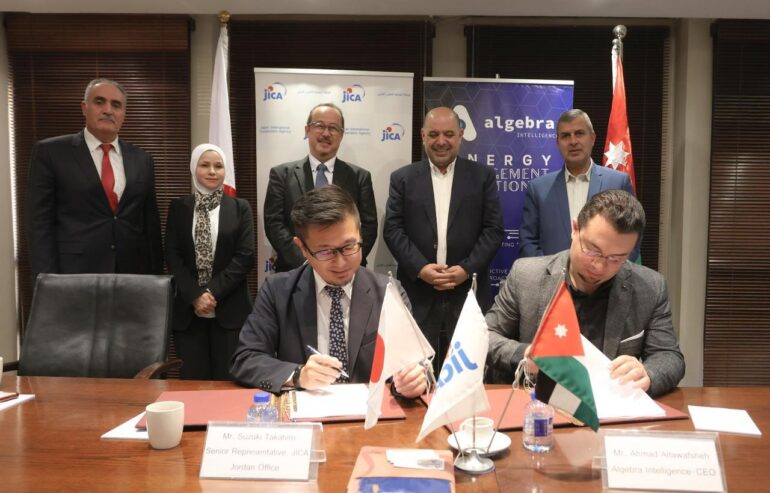- Japan International Cooperation Agency (JICA) collaborates with Algebra Intelligence for an AI project in Jordan.
- The aim is to optimize electrical load planning and predict impacts on energy systems.
- The project aligns with Jordan’s focus on advancing AI technologies.
- Key figures like JICA’s Morihata Shingo and Jordan’s Energy Minister emphasize the project’s significance.
- Algebra Intelligence CEO highlights role in energy decision-making and forecasting.
- The project underscores Algebra’s expertise among 11 selected firms.
Main AI News:
Inking a deal on Thursday, a groundbreaking collaboration has been solidified between the Japan International Cooperation Agency (JICA) and Algebra Intelligence, a premier software entity specializing in Internet of Things (IoT) solutions. The pact signals the commencement of an artificial intelligence endeavor aimed at optimizing electrical load planning and operations.
This strategic alliance is a testament to the concerted efforts of the Ministry of Digital Economy and Entrepreneurship and JICA, which are dedicated to propelling artificial intelligence initiatives in Jordan. The overarching goal of this venture is to refine decision-making processes pertaining to both conventional and alternative energy systems, with a keen focus on accurately forecasting electrical loads and their weather-induced ramifications.
At the ceremonial signing, graced by distinguished figures, including Morihata Shingo, Chief Representative of JICA Jordan Office, and Energy Minister Saleh Kharabsheh, Minister of Digital Economy and Entrepreneurship Ahmed Hanandeh underlined the pivotal role of the project in elevating energy sector efficiency and catalyzing economic growth.
Hanandeh shed light on the project’s pivotal function in harmonizing energy production with consumption trends and emphasized forthcoming collaborations across diverse sectors such as healthcare, agriculture, and education, envisaging a trajectory of technological advancement and economic prosperity.
Kharabsheh accentuated the imperative of integrating artificial intelligence into electrical load planning to optimize the utilization of renewable energy sources and fortify predictive capabilities.
Shingo voiced unwavering confidence in the collaborative venture with Jordan, envisioning groundbreaking strides in artificial intelligence and technological prowess that will set unparalleled benchmarks for innovation and infrastructural development.
Ahmed Tawafsheh, CEO of Algebra Intelligence, underscored the project’s pivotal role in facilitating informed decision-making processes regarding energy generation and forecasting, reaffirming the company’s steadfast commitment to enhancing energy efficiency across Jordan and Saudi Arabia.
In terms of project selection, Lama Arabiyat from the Artificial Intelligence and Advanced Technologies Department highlighted Algebra’s designation among 11 firms, citing its profound expertise and robust capabilities in executing the envisioned project.
Conclusion:
The collaboration between JICA and Algebra Intelligence signifies a significant advancement in leveraging AI for energy efficiency in Jordan. This partnership not only highlights the importance of integrating technology into traditional sectors but also sets a precedent for future collaborations in AI-driven solutions globally. This signals a growing market demand for innovative technologies to address energy challenges, with potential ripple effects across various industries.

